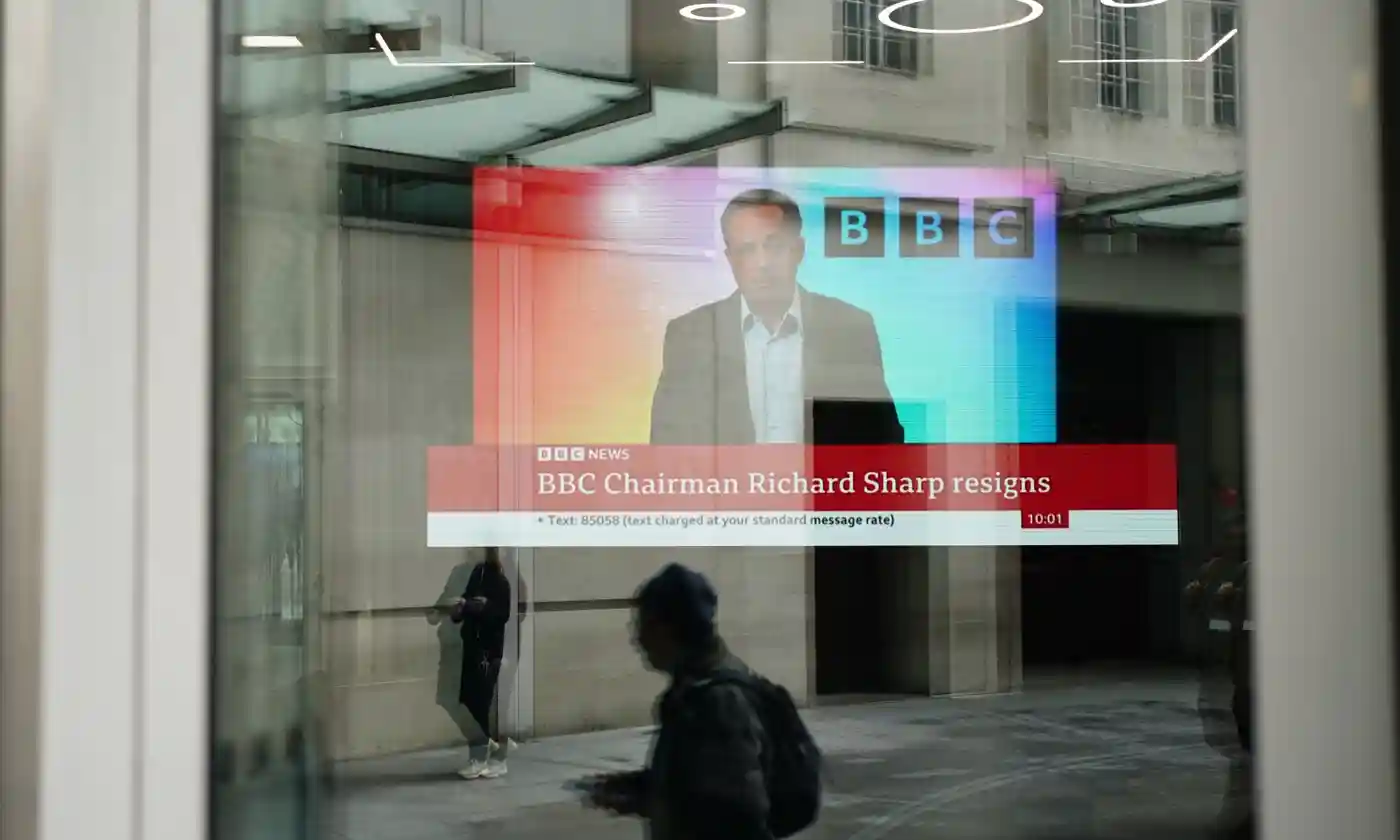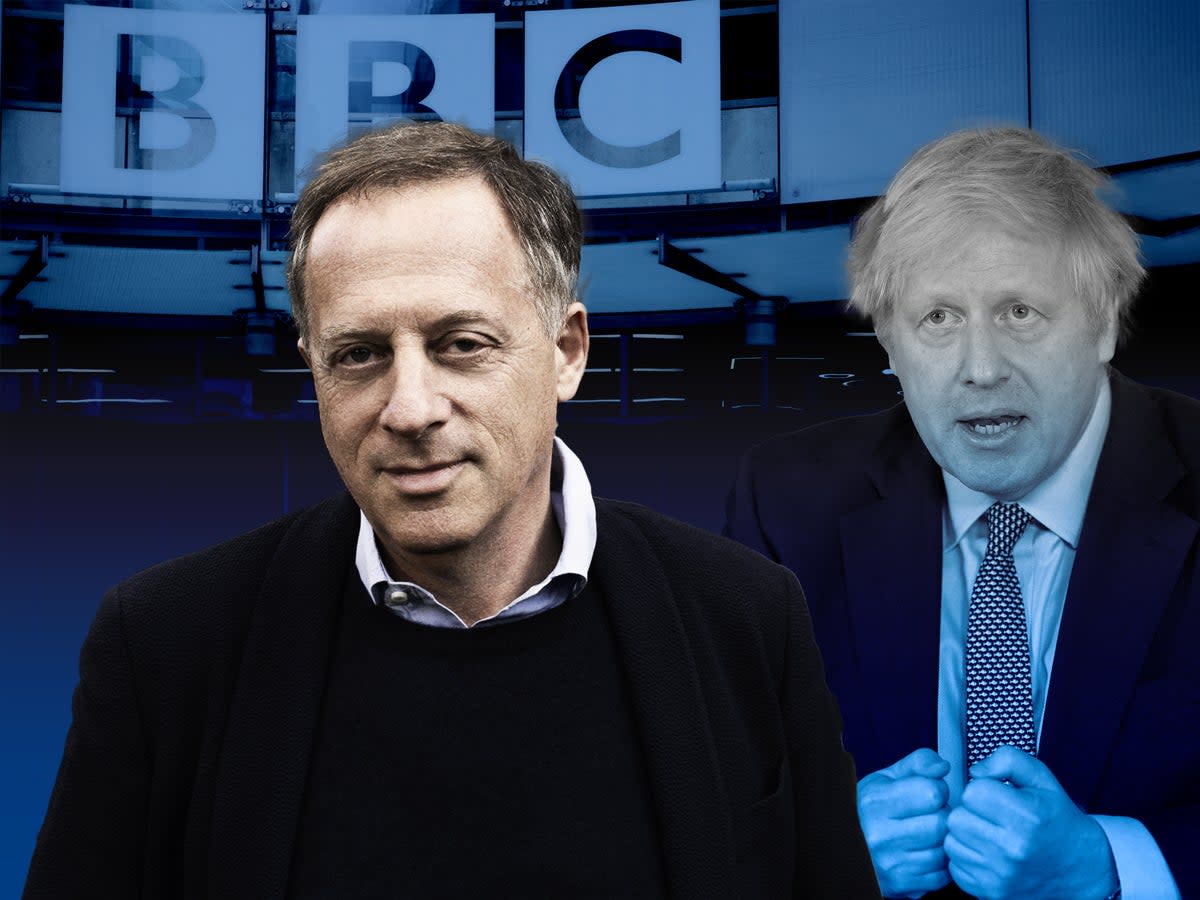By Lisa Bensoussan,
The recent resignation of Richard Sharp as Chairman of the Board of the British Broadcasting Corporation (BBC) has raised concerns about the potential dangers of political interference in the media and its impact on democracy. As the former BBC chairman, did not fully reveal his knowledge of the former prime minister’s personal finances, Mr. Sharp was found by a report to have given the impression of a conflict of interest by not fully revealing. The scandal surrounding Sharp highlights the need to keep the media free from political influence and preserve their impartiality.
The incident dates back to December 2020 when Sharp attempted to schedule a meeting between Cabinet Secretary Simon Case and Sam Blyth, a distant cousin of Mr. Johnson who had expressed a desire to offer financial assistance to the Prime Minister after reading media reports that he was facing financial difficulties. Sharp, a close ally of former UK Prime Minister Boris Johnson and former banker at Goldman Sachs, then facilitated a personal loan for Johnson. Richard Sharp, who was an ex-investment banker and Conservative Party donor, had already submitted his application for the top BBC position when he approached Mr. Case. He was eventually appointed to the role a few months after their meeting but failed to disclose his role in the loan arrangement.
The investigation was initiated following reports by the Sunday Times which exposed that Sharp, who has a close relationship with Mr. Johnson, was involved in the Prime Minister’s personal finances while simultaneously vying for the top position at the BBC. On May 28th, a report was published by barrister Adam Heppinstall that was critical in nature, following months of speculation regarding Sharp’s position and a dispute over the independence of the BBC. The report found that the former chairman did not disclose two potential conflicts of interest. Firstly, he should have informed Johnson of his intention to apply for the role before officially doing so. Secondly, he should not have attempted to arrange a meeting between Mr. Case and Mr. Blyth, who had offered to financially support the PM.
While Mr. Sharp apologized for the second conflict, he did not accept the first conclusion. The report found that its involvement in the PM’s private financial matters created a risk of perceived conflict of interest. Though the report described his involvement as “very limited,” it recommended that he should have declared it. Despite the meeting between Mr. Case and Mr. Blyth not occurring, the report concluded that Sharp’s involvement should have been declared. As the investigation revealed the potential conflict of interest, he was forced to resign.

The scandal has sparked a debate about the independence of the media and the potential dangers of political interference. When politicians have too much influence over the press, it can lead to a lack of impartiality, the suppression of opposing views, and the propagation of propaganda. Indeed, the report noted the way people could perceive that Sharp was “beholden to the prime minister for his support such that his independence from the government was compromised”. The independence of the media is an essential component of democracy, as it ensures the freedom of speech and the transparency of information. In this way, the Sharp affair is a reminder of the need to keep the news free from political influence and preserve its impartiality.
The resignation of Sharp as Chairman of the BBC is a wake-up call for information providers and governments worldwide to ensure that the independence of the media is maintained. The press plays a critical role in keeping the public informed and holding those in power accountable. The public needs to trust that the news they receive is unbiased and accurate and that this industry is free from the influence of politicians and other powerful interests.
The incident with Sharp is not unique to the UK. In Italy, former prime minister Silvio Berlusconi wields significant control over the country’s television networks, with three of the largest private broadcasters and influence over public service broadcasters. This control is estimated to cover almost 90% of Italy’s TV output. Meanwhile, in France, billionaire Vincent Bolloré built himself an extensive media and publishing empire to secure his ability to control information, promote ideas and policies that aligned with his interests, suppress those who opposed him, and boost the political prospects of his preferred politicians. This was recently demonstrated when French member of Parliament Louis Boyard was censured by TV host Cyril Hanouna after he mentioned corrupt practices in West Africa by Bolloré’s family-owned industrial group on a channel owned by the billionaire.

In conclusion, the resignation of Richard Sharp as Chairman of the BBC highlights the need to keep the news free from political interference and preserve its impartiality. The media’s independence is a cornerstone of democracy, and any attempts to undermine it must be taken seriously. Governments must ensure that the media remains independent and free to report the news without fear or favor. The public’s trust in the press is essential, and it is up to all of us to ensure that this trust is not broken.
References
- “Richard Sharp: BBC chairman resigns over report into appointment” by Sean Seddon. bbc.com. Available here
- “Richard Sharp: key inquiry findings on how he was appointed BBC chair” by Geneva Abdul and Jim Waterson, theguardian.com. Available here
- “’Buffoon’: Left-wing MP to file criminal complaint against TV host for insulting him”. france24.com. Available here
- “When billionaire Vincent Bolloré secretly shadowed an unflattering TV documentary by Yann Philippin and Valentine Oberti. mediapart.fr. Available here




